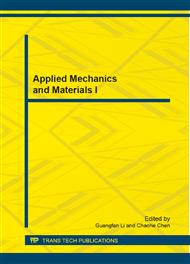p.2629
p.2635
p.2640
p.2646
p.2650
p.2654
p.2659
p.2669
p.2673
Research on Minimum-Cost-Based Task Decomposition Model of Multiple Expert Systems for Oil-Gas Reservoir Protection Based on Agent
Abstract:
To solve collaboration problem in multi-expert system, intelligent agent technology is used in multi-expert system.Firstly,by introducing a minimum-cost-based formal description of task decomposition,a new agent task decompositon model is presented.Secondly, heuristic algorithm for task decomposition is analyzed to solve communication among agents.For illustration, expert systems for oil-gas reservoir protection is utilized to verify the effectiveness of the method.The application of the expert system shows that based-minimum-cost task decompostion model is valid in agent task decomposition and heuristic algorithm for task decomposition can be used as communication among agents.As a result,the proposed cooperation mechanism based on agents can effectively solve the collaboration of experts in the multiple expert systems and improve the accuracy of inference.
Info:
Periodical:
Pages:
2650-2653
Citation:
Online since:
January 2013
Authors:
Keywords:
Price:
Сopyright:
© 2013 Trans Tech Publications Ltd. All Rights Reserved
Share:
Citation:


